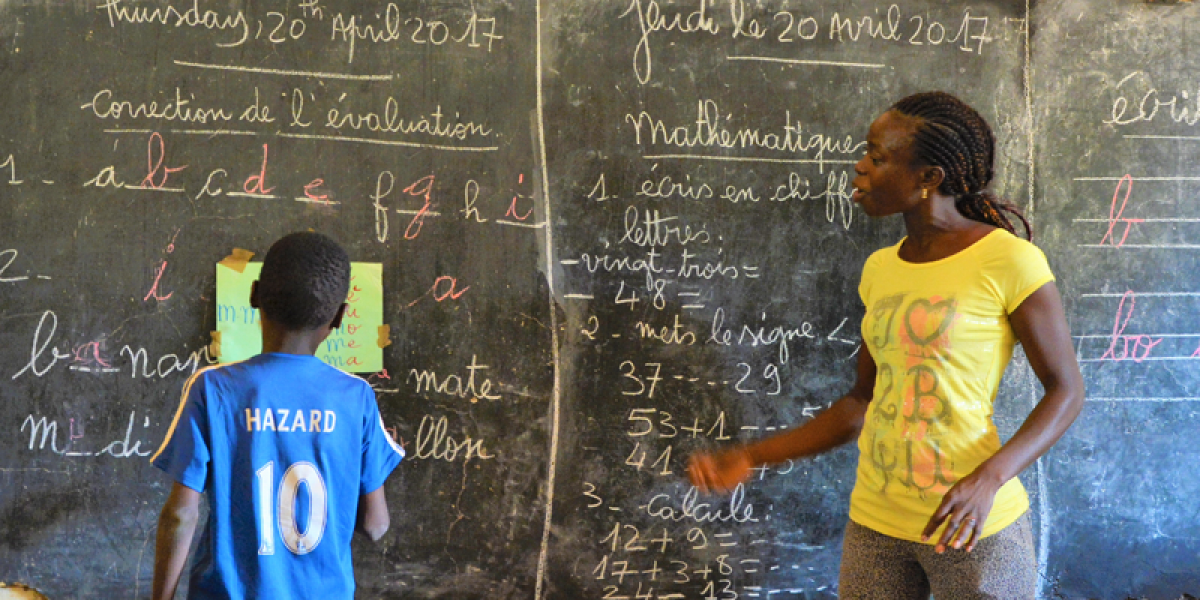Cameroon: Transforming Lives of Refugee Children in Cameroon
08 June 2017

Since 2013, Cameroon has accepted over 25,000 refugees from the Central African Republic (CAR). These refugees have fled from violence, execution, torture, and persecution. This influx of refugees represents a significant new population in many villages and towns across Cameroon and has taken a toll on their already strapped resources, including education.
Cameroon’s education system already has limited capacity and infrastructure. Often the schools have very few teaching materials, books, and furniture, and little or no means of maintaining buildings, classrooms, or latrines. Teachers are also lacking in capacity, some teaching more than 100 students for a salary which is very low, even by local standards. The influx of refugee families has exacerbated these issues and has driven some schools and towns to limit education to local populations.
In 2016, JRS implemented a project that promotes access to quality primary education for refugee children aged 6-13 in the villages in Eastern Cameroon of Boubara and Kadey. Some of the key components of the project were to mobilize community for schooling, promote access to quality education through training teachers and construction and rehabilitation of 2 buildings with 8 classrooms at Kette public school. JRS also carried out training for 31 teachers from five schools.
In addition, JRS worked on promotion of peaceful coexistence between the host community and the refugees through reading course, focused on peace education, rights of children, and inter-religious dialogue.
In implementing this project, one of the challenges that JRS faced was that families of newly arrived refugees had a limited understanding on the value of education. It is estimated that 75% of refugee children from CAR had not been enrolled in school before they fled because their families were essentially nomads. This required JRS to take a holistic approach to the complex situation of education in Eastern Cameroon. JRS put a lot of effort to change the attitudes and prejudices of the refugees about school and visited 100 families to sensitize them to the importance of education and promoted local financial responsivlity for the schools. Since the attitude of local populations to education is the same as the refugees, JRS targets both communities in the programming.
JRS presence in the region last year transformed the lives of many refugees providing access to 800 children in Eastern Cameroon alone. Quality of education has also improved through the teacher training while the readings that are focused on peace education helped improve social cohesion between the host community and the refugee community has improved.
This year, JRS will continue to follow up on the challenges through empowerment of the primary schools already supported in order to address the critical issues linked to the integration of children who are chronically not enrolled. The positively evaluated reading courses by adults in the refugee community will also continue to promote co-existence between the host community and refugees. Taking account of the traditional cultures and values, special attention will also be given to attendance of girls.
Under the challenging circumstances refugees live in Cameroon, JRS envisions education not to only be a lifesaving intervention but an important tool to promote peace and stability.



